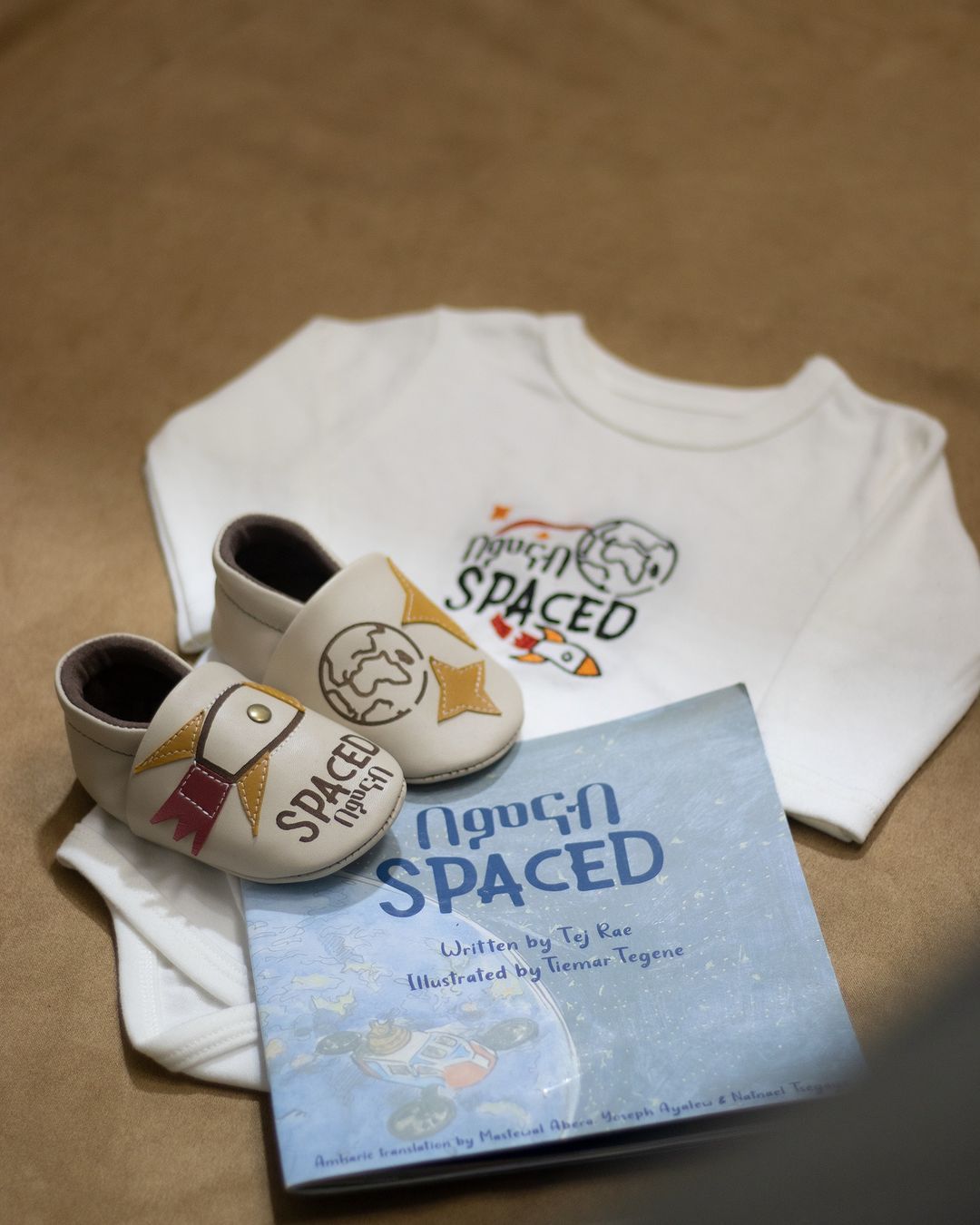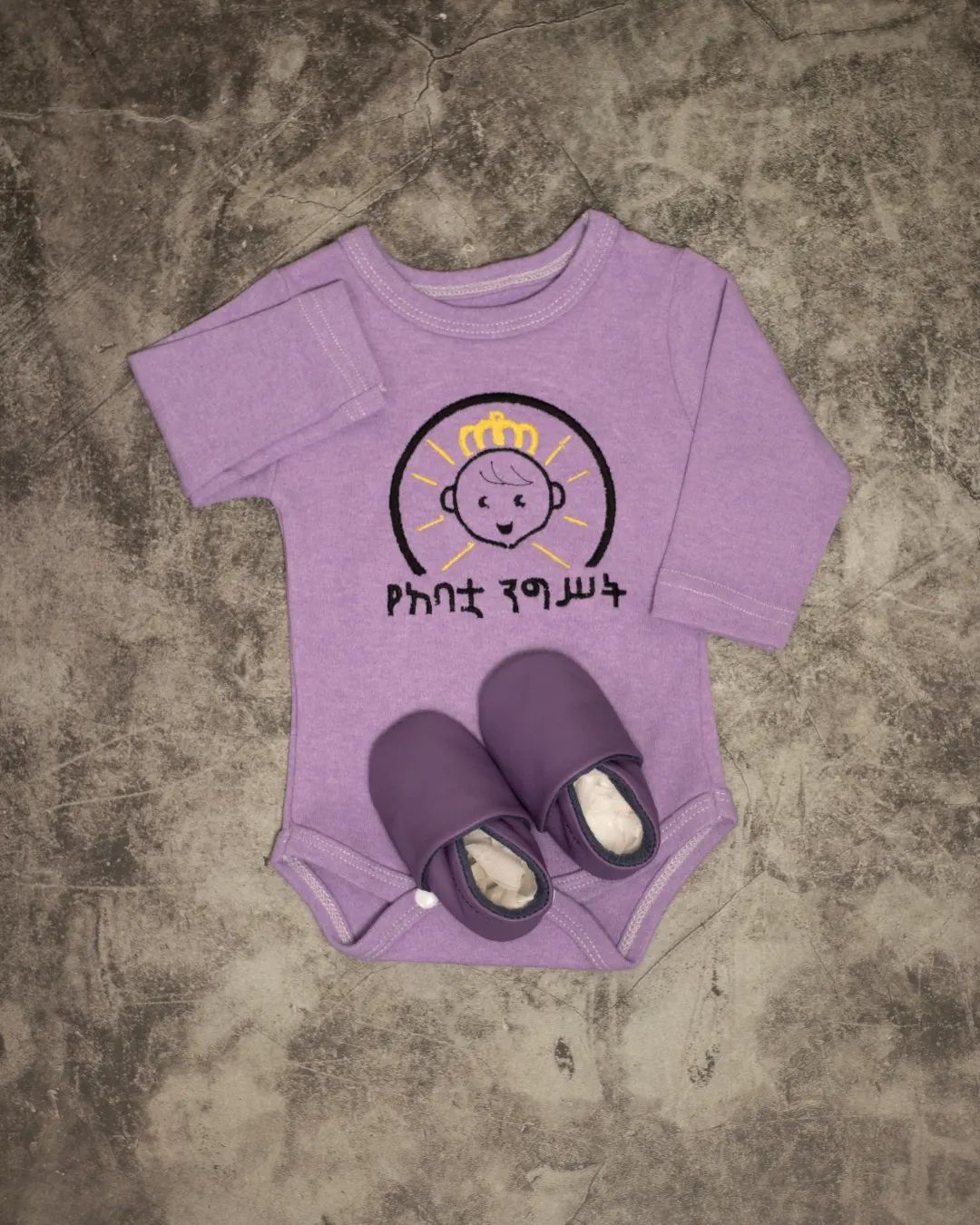Progress for 0 ad
Progress for 1 ad
Progress for 2 ad
Progress for 3 ad


Daniel Metaferiya
Addis Ababa, Ethiopia

According to Kalkidan, the children’s clothes available on the market were often itchy, and the prints on the shirts made babies uncomfortable.
“After exploring various options, one day I came across Wolfaby on Instagram and decided to check out their products. Initially, I was drawn to the fact that their items could be customized to my preferences. I purchased handmade headwear and socks, and my friend loved them,” says Kalkidan.
Since then, Kalkidan has been a loyal customer of Wolfaby, ordering clothes over ten times, including for her newborn son, who is now a year old.
Wolfaby is an Ethiopian-origin brand that specializes in designing contemporary baby clothing and associated products. They create handmade baby booties, blankets, and knitwear using traditional artisanal techniques. What sets Wolfaby apart is that all their products are made to order, eschewing mass production.
Each product is cut and stitched individually, resulting in unique and detailed items.

Tsion Eticha, who is a mother of two, is the co-founder of Wolfaby along with her husband, Tibeb Ayele.
“I started this company based on my passion for creating adorable items at home,” she explains. “As a mother myself, I had ample time during my pregnancy to learn knitting from my grandmother.”
What began as a hobby during her pregnancy evolved into crafting traditional, handmade sweaters and other items. “The skills I developed during my pregnancy laid the foundation for my business,” she says.
Tsion recalls that her six-month-old baby showed a preference for the handmade products crafted by her family. “Seeing this, I focused on creating more comfortable attire for her using my own hands,” she adds.
Related- This Ethiopian Innovator Wants To Save Bees, Boost Production Using 3D Printing, Data
As word spread about her work, Tsion noticed a growing interest from others. “The positive word-of-mouth propelled my venture forward,” she explains.
“Personalized items are hard to come by in Ethiopia, and many new mothers around me were intrigued by my creations and began ordering my products,” she tells Shega.
After an initial operation out of her home, demand grew, and she established her studio around Torhailoch.
“I am married to a footwear and leather engineer, and I also have a degree in Environmental Engineering from Addis Ababa Science and Technology University, thus, we decided to create high-quality, perfectly fitting, and adorable baby items, naming our venture ‘Wolf of Abyssinia,’ Tsion shares. “Since then, Wolfaby has grown steadily.”
Initially, the couple showcased their products in a leather goods shop around Bole, but as they transitioned to online sales, their business flourished.
According to the CEO, Wolfaby operates on a made-to-order basis, requiring advanced payments before production begins. Customers are instructed to send a 40% advance payment via screenshots or receipt images through Telegram or WhatsApp. Wolfaby caters to babies from newborns to 12 months old.
Currently, Tsion and her husband sell over two hundred products per month, both locally and internationally. Tsion notes that she receives orders from worldwide customers through her social media channels and the e-commerce website her husband built, which is integrated with PayPal.
She explains that their major customers reside in the United States, followed by the UK and Australia, with additional orders coming from European countries.
“While our bestselling item is the baby Gabi, priced between 800 and 1200 birr, we also offer headwear and footwear,” says Tsion. They provide free delivery to major areas within the capital, with delivery charges applied for orders outside the capital or from foreign countries.

Ethiopia has a rich history of textiles dating back to 1939 in Dire Dawa City. According to a paper published in 2020 by Bewuket Teshome, the textile industry encompasses various stages, from cotton production to garment manufacturing. However, despite having three million hectares of suitable land for cotton production, only around 3.7% is currently utilized.
The paper states that after harvesting, cotton is processed in 21 ginning factories, with the lint supplied to textile mills. At the time there were around 38 textile factories in Ethiopia, predominantly owned by the government, producing workwear garments for the domestic market. Additionally, there were over 80 garment factories, mainly located around Addis Ababa in 2020.
There are also companies like Wolfaby that produce handmade cloths, such as Saba Har and Afar Textile.
Kalkidan, one of Wolfaby’s first customers, applauds the brand for filling a crucial gap in the market. “Many parents struggle to find suitable clothing for their infants,” she explains. “Wolfaby understands that every mother wants the best for their child, and they provide high-quality, comfortable options that cater to individual needs.”